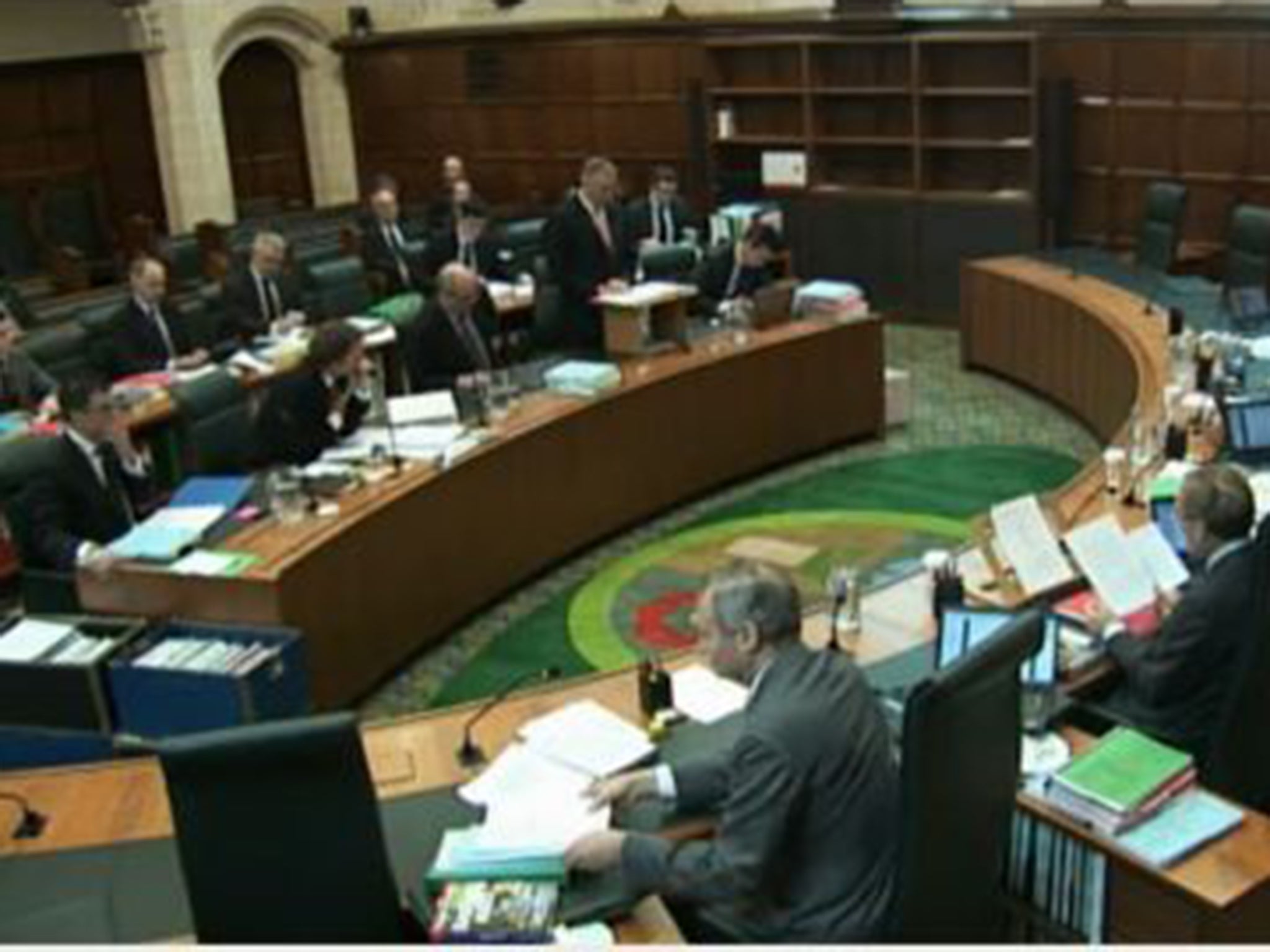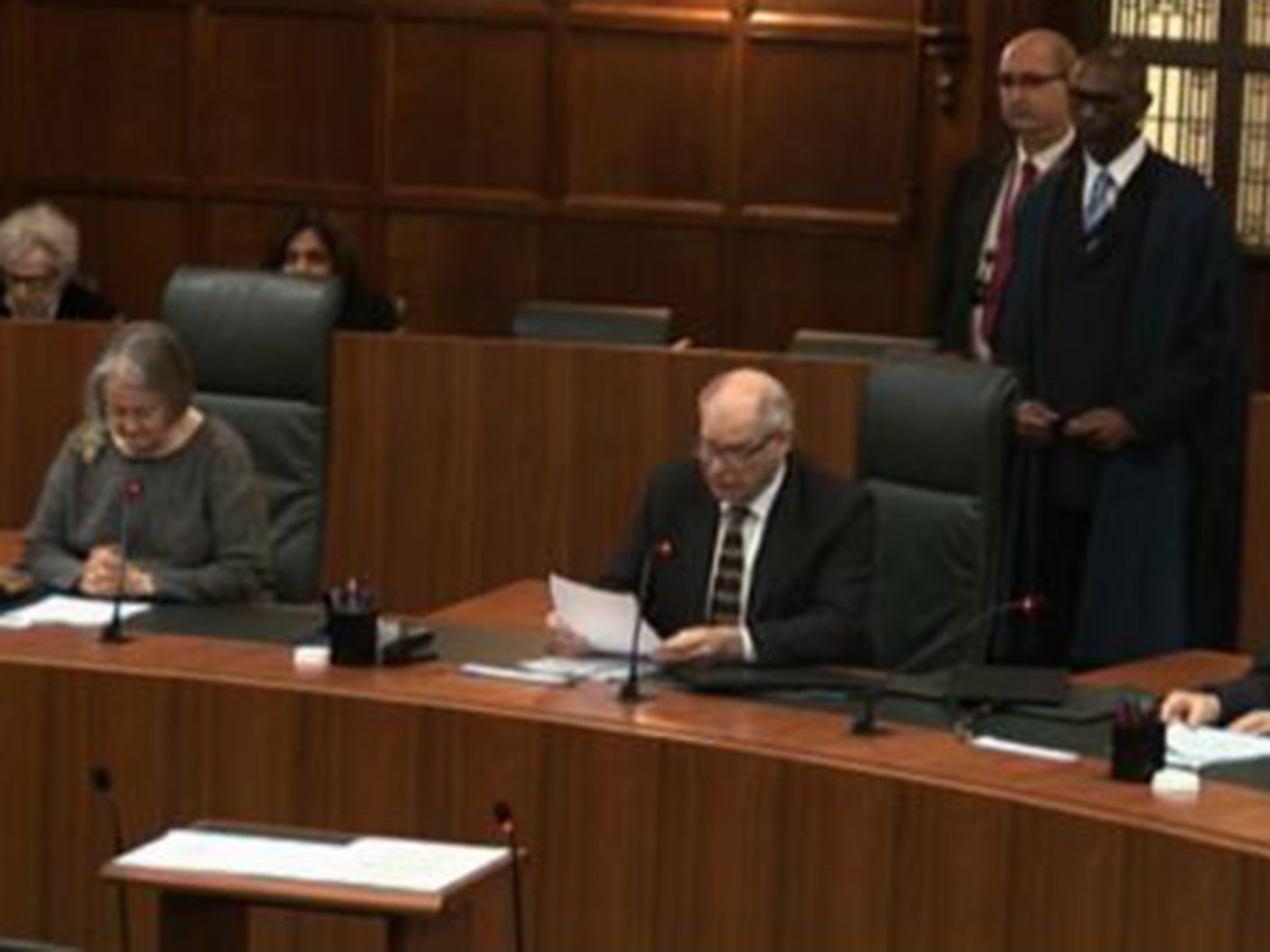Over 900 hours of footage from Supreme Court made available to view online
The service, described as BBC iPlayer for the highest court in the country, should be enough to satisfy even the most dedicated of law geeks

For fans of courtroom dramas, it promises to be the ultimate legal boxset. But devotees of shows such as The Good Wife, Ally McBeal and Rumpole of the Bailey should be warned that it’s a bit of a slow burner.
More than 900 hours of footage from the Supreme Court has been made available to view on demand over the internet. The service, described as BBC iPlayer for the highest court in the country, should be enough to satisfy even the most dedicated of law geeks.
The court, which hears cases of the greatest public or constitutional importance likely to affect the entire population, has been offering a live streaming service since 2011 as part of efforts to make its work more transparent. But until now, no archive of proceedings has been available.

The new service will allow anyone with an internet connection to pore over the last year of the court’s work, amounting to around 150 hearings from both the Supreme Court and the lesser-known Judicial Committee of the Privy Council, which is housed in the same building and hears appeals from Commonwealth countries, British Overseas Territories and Crown Dependencies.
“Now justice can be seen to be done at a time which suits you,” said Lord Neuberger, the president of the Supreme Court, whose pronouncements over the past year can now be viewed by all. “The archive will help people see the background to decisions made in our highest appeal court. It will also be useful to the legal profession and serve as an informative tool for those considering a career in the law.”
However, viewers hoping for the kind of shocking or hilarious courtroom exchanges featured on shows such as LA Law may be disappointed. Rather than witness cross-examination, the role of the Supreme Court’s justices is to pick over occasionally fiendishly complex points of law.
In a rare interview with The Independent on Sunday last year, Lord Neuberger said the often cerebral nature of Supreme Court proceedings posed a challenge for the court’s 12 justices, who had to make sure they remembered the human impact of their decisions.
“One of the risks of this job is that you get too interested in the law and forget the human aspect,” he said. “We don’t have witnesses, whereas trial judges are reminded of the real world constantly. One wants to be detached, but not remote.”
Highlights from the footage being made available today include a Soho sex shop owner’s barrister successfully persuading the court that the sector’s licensing regime may fall foul of EU laws, resulting in the matter being referred to the European Court of Justice in Luxembourg.

The Supreme Court justices hope that the online archive will cut the costs associated with producing transcripts, as well as providing an educational tool for law students. Footage of future cases will be uploaded the day after they are heard and will remain available for a year. For copyright reasons, users will not be able to download the videos.
Trial by television: Best of the (900 hours of) footage
Keyu and others (Appellants) v Secretary of State for Foreign and Commonwealth Affairs and another (Respondents)
James Eadie QC, opening his argument on the correct test the court should apply when deciding whether the Government should be forced to open an inquiry into the killing on 11-12 December 1948 of 24 unarmed civilians by a patrol of Scots Guards in the village of Batang Kali, Malaya: “My Lords, My Lady, I start with two lines of terror and one crumb of comfort. The first line of terror is that if you accede to my learned friend Mr Fordham’s submissions in this case, a well understood, constitutionally appropriate and resilient concept [that Government decisions can only be reviewed by the courts where they are found to be irrational, rather than simply disproportionate] will have been put to judicial death on my watch as Treasury Devil.
Lord Kerr: No better time, Mr Eadie.
James Eadie QC: Easy for my Lord to say now, if I may say so [Lord Kerr served as Senior Crown Counsel, an equivalent to Eadie’s present role, in Northern Ireland between 1988 and 1993]… And the second is that the inevitable consequence is that, in daily practice in the Administrative Court, my life will become increasingly difficult if the new test of proportionality is adopted. The crumb of comfort is that I know My Lords and My Lady will be approaching that big issue of principle with entirely open minds.”
R (on the application of Evans) and another (Respondents) v Attorney General (Appellant) – Prince of Wales’ letters case
Dinah Rose QC, arguing that the meaning of “reasonable grounds” changed depending on whose decision was being challenged: “Before Galileo it would have been perfectly reasonable for an educated person to think that the sun went round the earth. But after Galileo there would no longer have been reasonable grounds for that opinion. What has intervened is an authoritative statement of the true position…”
Lord Kerr: Well… how long after Galileo?
Dinah Rose QC: That’s another question, depending perhaps on one’s particular religious background. But my point is that reasonable grounds cannot considered in a vacuum.”
Join our commenting forum
Join thought-provoking conversations, follow other Independent readers and see their replies
Comments